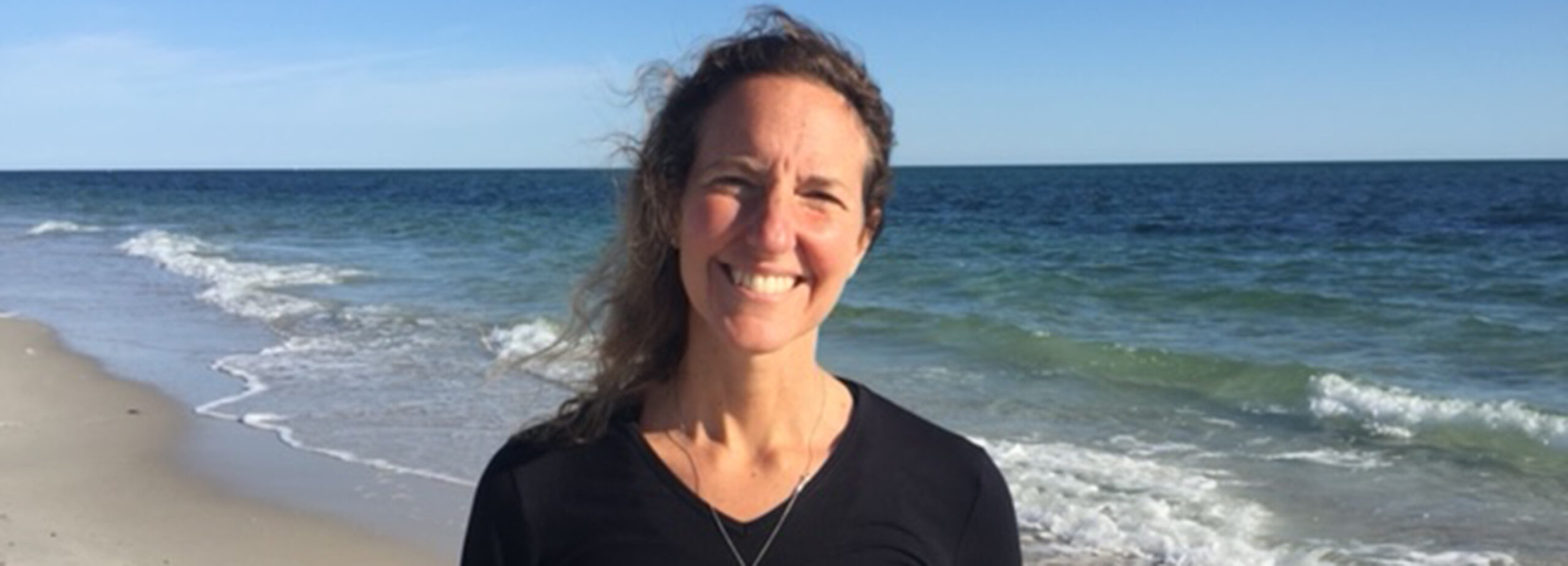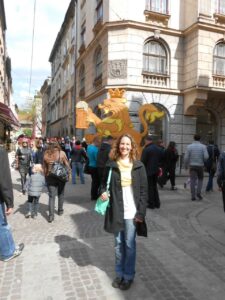Community Blog A Calling to Ukraine and the Outdoors: The Many Paths to Rabbinical School

There is no one path to rabbinical or cantorial school. Rabbis and cantors come from a variety of geographical and socio-economic locations, life situations, and educational backgrounds. If you’re considering ordination, learn more at hebrewcollege.edu.
“I decided to go to rabbinical school to fulfill a need to have a deeper formational experience that I was lacking,” said Michelle Goldhaber, a shanah gimmel (third year) rabbinical student at Hebrew College. The College, she feels, is a unique place where intellectual, practical, and spiritual formation meet and help creative (aspiring) rabbis like her thrive and develop.
Before pursuing rabbinical school at Hebrew College, Goldhaber earned two master’s degrees: a Master of Social Work from Simmons College and a Master of Divinity (MDiv) from Harvard Divinity School. Additionally, she’s found a part-time home in Ukraine and started a non-denominational peacebuilding NGO called Seven Stones International that uses experiential outdoor trips to break down various ethnic, racial, and religious stereotypes. Since 2002, she has taken yearly trips to Ukraine as a researcher, a summer language school student, election observer during the Orange Revolution, Fulbright student, translator, and more. The most significant part of her work in the country before the war was working at the Ukrainian Catholic University to help build a Jewish studies program. “They are very interested in incorporating Jewish history with Ukrainian history because it is intertwined.”
“I found a deep calling to be here, to continue being here,” said Goldhaber. “I also had a vision about my place in the Jewish world with one foot in and one foot out, kind of representing Judaism to a secular, pluralistic, or non-Jewish place—and also bringing some of the outside world back to the Jewish world.”
In the United States, she was a social worker in an elementary school and attended night classes at Harvard Extension School, where her advisor first put divinity school on her map. “Some time at the beginning of divinity school, I switched my degree from a Master of Theological Studies to the more hands-on MDiv, because I decided I wanted to actually be doing the work and not just studying the concepts,” added Goldhaber.
“While I was in Divinity School, I remained a generalist and didn’t focus on any one particular religion,” she recounted. “But after years of freelancing post-grad, I increasingly had this nagging feeling that something was missing, and I wasn’t having enough impact. Somewhere around that time, Rabbi Daniel Berman of Temple Reyim, looked me straight in the eyes and asked, ‘So, Michelle, when are you going to rabbinical school?’”
“I never really considered becoming a rabbi because I assumed you have to be completely immersed in the Jewish world and I didn’t think I was a good model for that. But when Rabbi Berman asked me that question, for some reason I was open to hearing it in a different way,” she recalled.
After two years of discernment—aided by Hebrew College’s President Rabbi Sharon Cohen Anisfeld, Rabbi Dan Judson, Rabbi Jordan Schuster, and Rabbi Daniel Klein—Goldhaber knew Hebrew College was the right place for her and her complicated spiritual journey. The process was open, honest, and even vulnerable for Goldhaber. “I shared everything with them upfront—I didn’t want there to be any surprises,” she said. “I told them that my biggest davening place was nature, I sing in a Christmas choir, do Zen meditation, and participate in a Daoist discussion group—I don’t have any doubt about my Jewish identity, but my spiritual path isn’t necessarily the traditional one.”
“Michelle was a fascinating prospective student because of the richness of her experience, particularly her extensive work in Ukraine,” said Rabbi Judson. “She was concerned that pursuing the rabbinate meant narrowing what she could accomplish in the broader world beyond serving religious Jews. But she came to understand that there are different paths people take TO the rabbinate, and there are indeed different paths people take FROM the rabbinate, and that there are many rabbis who do work which crosses borders to serve many different people and she could be one of those boundary crossers.”
“Eventually, they convinced me that that’s all fine,” said Goldhaber, with a laugh. “So, then I told them I don’t want to serve an explicitly Jewish community—and they said that’s great too! We need people who are outwardly focused and aren’t insular.”
She decided to involve Hebrew College in her discernment process because she didn’t see any other options that matched what she was looking for in a school. “I didn’t even seriously consider any other rabbinical schools, to be honest. Going anywhere less than completely pluralistic was never an option for me, and I wanted to remain in Boston, so Hebrew College was truly the best option for me.”
Following graduation and ordination, Goldhaber plans to apply her experiential training with her rabbinate. “My dream position has elements of reflection, contemplation, pilgrimage, nature immersion, retreat planning, and meaning-making,” she said.
Hebrew College offers a wide range of graduate degree programs to prepare you for or advance your career in Jewish leadership. Our graduate degree programs include Rabbinical Ordination, Cantorial Ordination, Master of Jewish Education, and Master of Arts in Jewish Studies.


